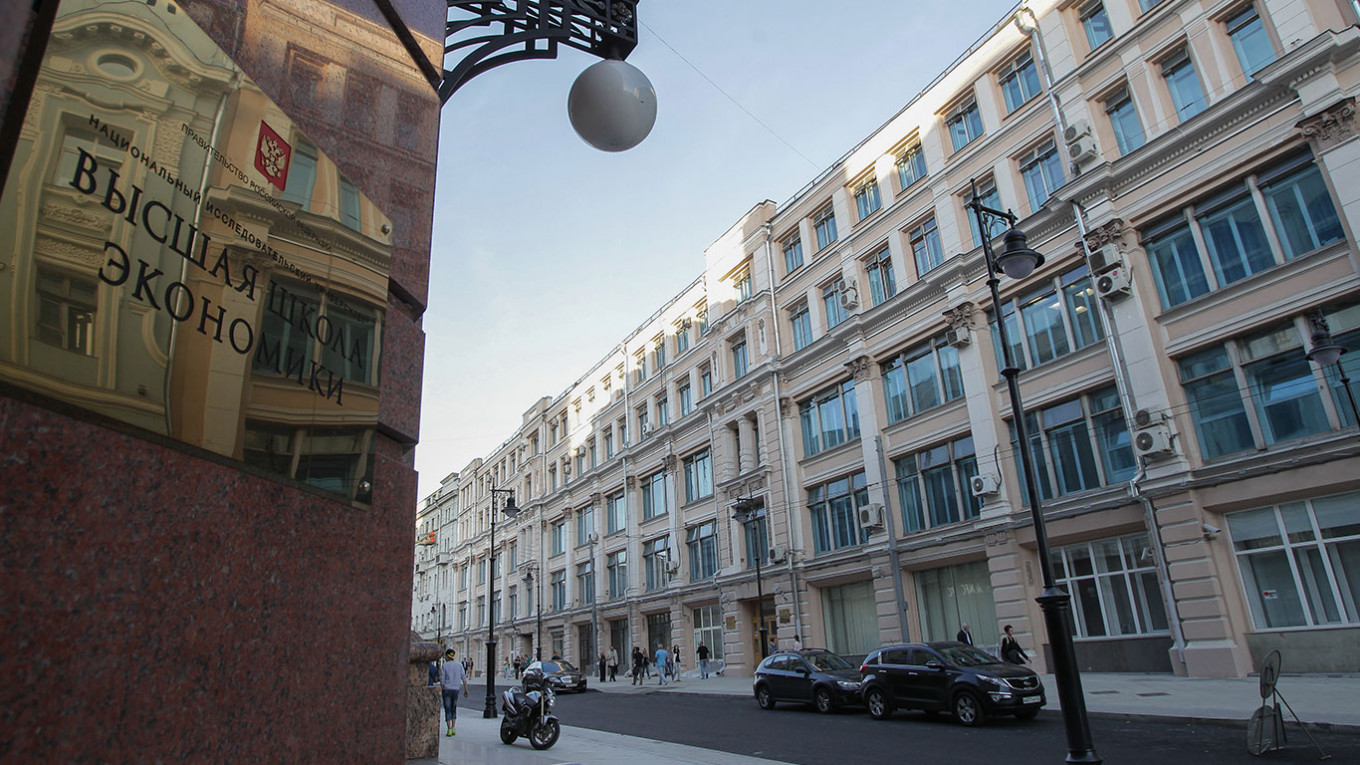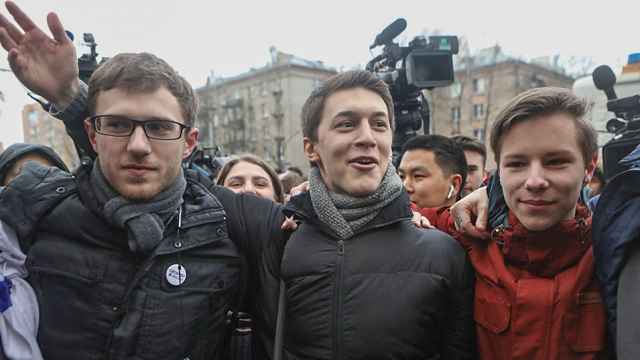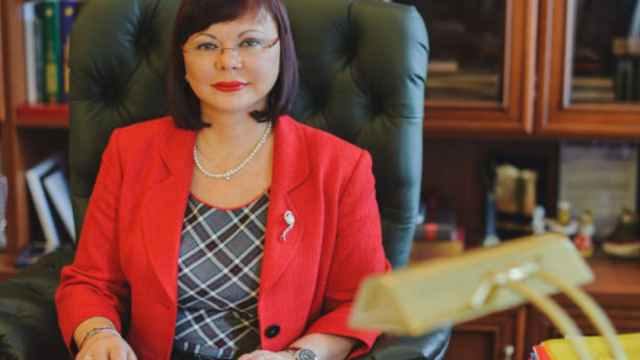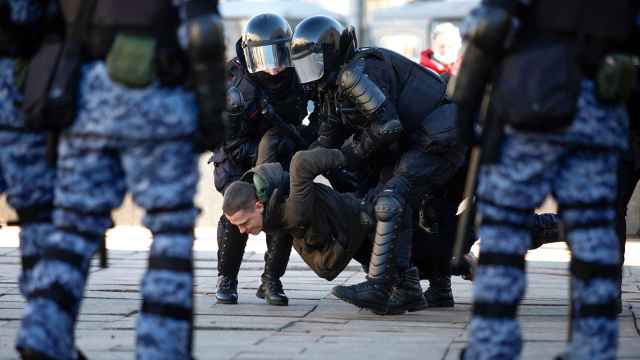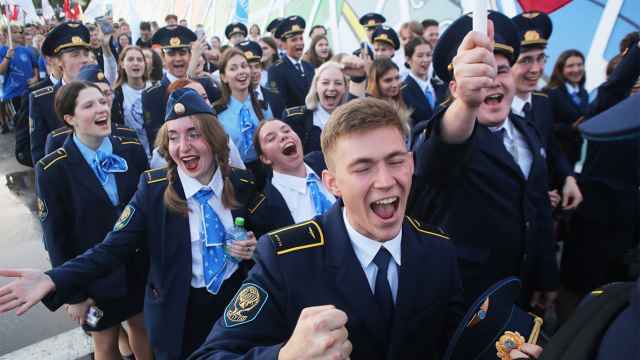Timofei Voronov, 21, a cultural studies student at Moscow’s Higher School of Economics (HSE), was summoned to see the prestigious university’s deputy head in March after being detained at an anti-war rally.
Along with several other students, Voronov was shown a list of new laws at the March meeting, including those that mandate long jail sentences for spreading “fake news” about Russia’s military campaign in Ukraine.
He said he was also asked to sign a document saying he had been informed of the risks of attending anti-war protests.
“There was a big list [of other students required to attend such meetings],” he told The Moscow Times. “There were at least 20 names.”
While such conversations are nothing new for many Russian universities, Voronov’s experience is one of the first recorded instances of them taking place at top-ranked HSE, a former bastion of liberal values that has appeared to have made significant compromises on academic freedom amid the war in Ukraine.
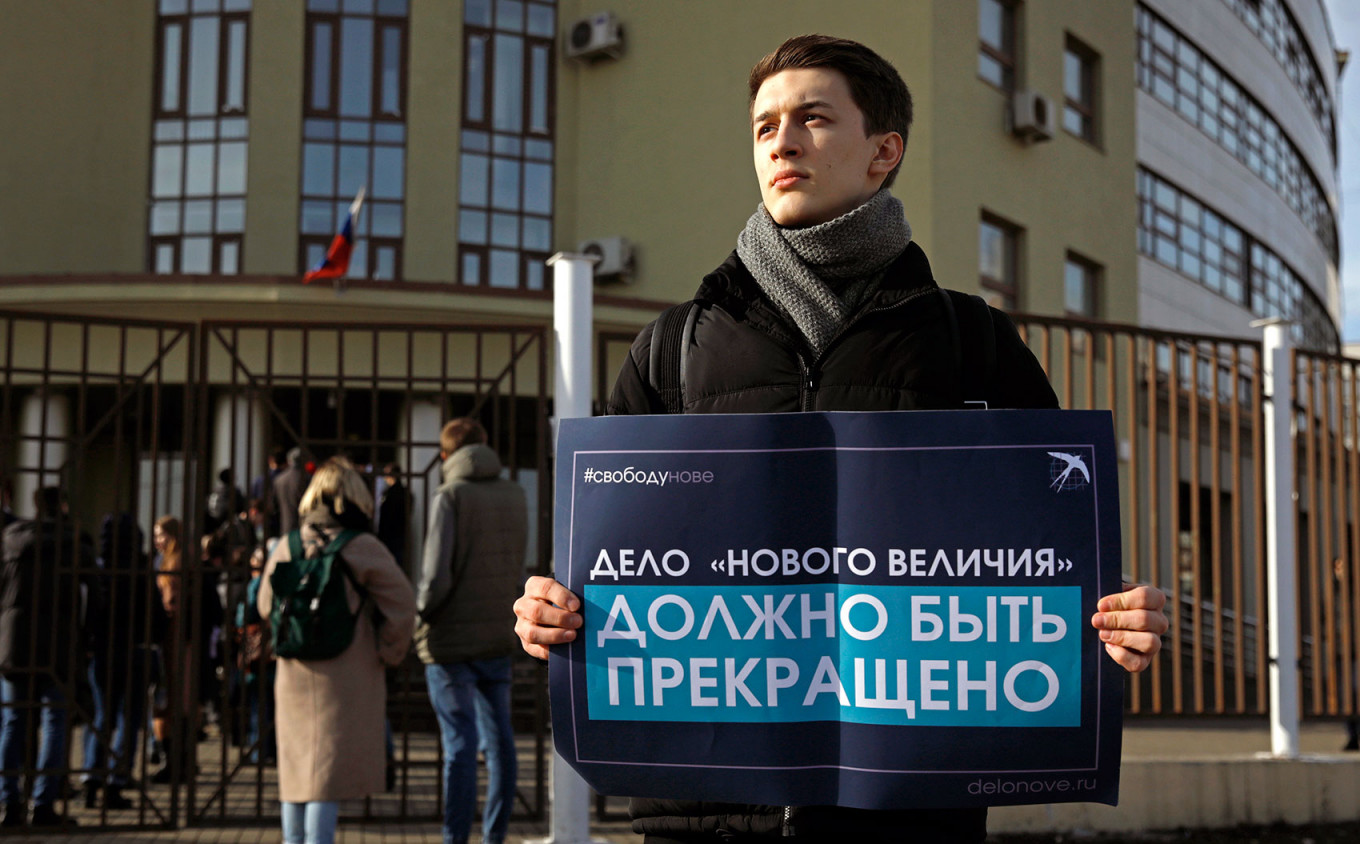
“HSE as we once knew it — the country's best socioeconomic university with world-class educational standards and academic freedoms — is over. It is incompatible with an authoritarian regime,” said Andrei Kolesnikov, a Russian politics expert at the Carnegie Endowment for International Peace.
A few weeks before Voronov was summoned for his dressing down, HSE rector Nikita Anisimov signed an open letter from more than 300 university heads in support of Russia’s attack on Ukraine.
“Universities have always been a pillar of the state,” the letter read. “It’s very important at this time to support our country, our army… [and] our president.”
Since the beginning of Russia’s invasion of Ukraine, there has been a significant rise in incidents of HSE cracking down on any public criticism of the government, according to staff and students interviewed by The Moscow Times.
Politically motivated dismissals, “prophylactic conversations” with students and the closure of academic programs have been among the steps taken by university management to shut down freedom of expression.
Husband and wife HSE academics Maria Mayofis and Ilya Kukulin decided to leave Russia a week after the beginning of the fighting in Ukraine because they didn’t support the invasion or the HSE rector’s pro-war position.
Despite teaching classes online before and during the pandemic, Mayofis said in an interview with The Moscow Times that she was told by management that HSE staff did not have the right to be outside Russia during the semester.
“We were asked if we were going to return and we said that if the political situation did not change we were not going to return,” Mayofis told The Moscow Times. The couple decided to resign shortly afterwards.
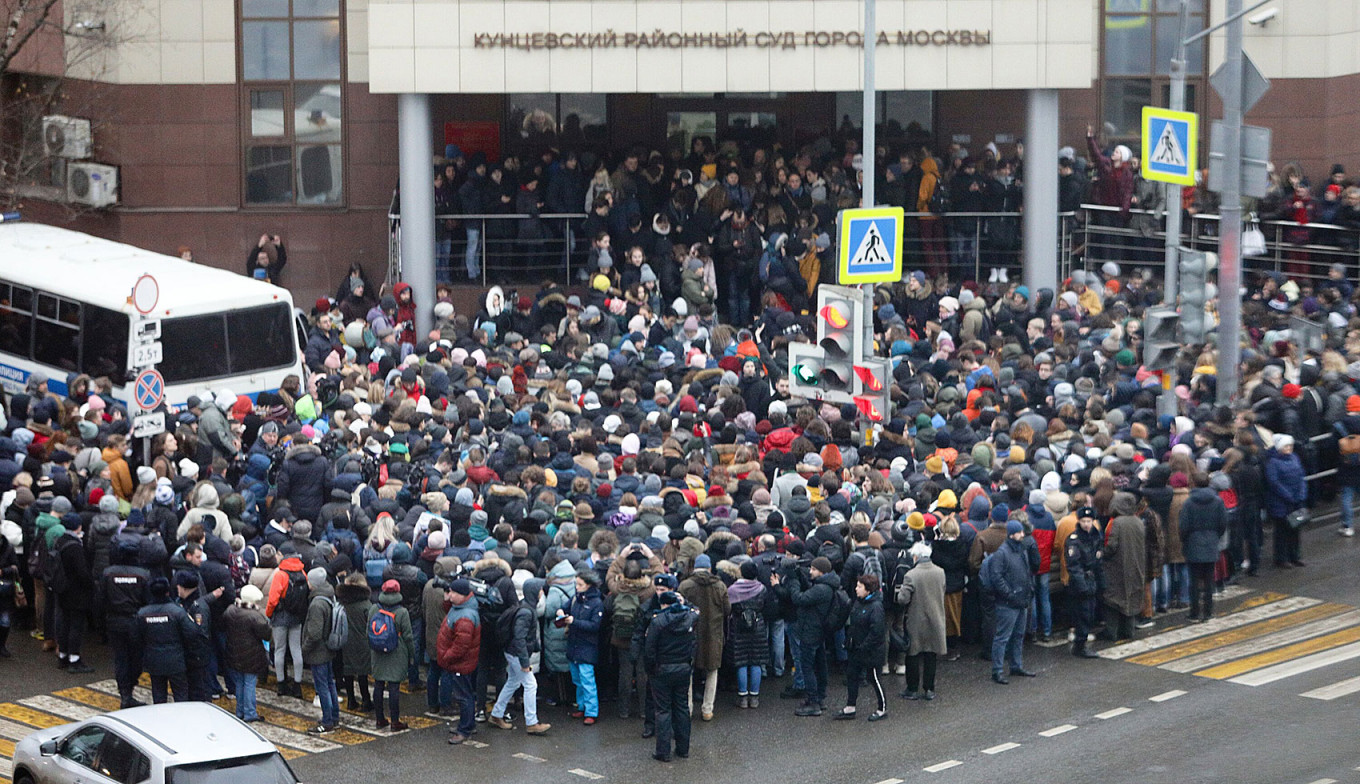
The departure of Mayofis and Kukulin caused an uproar among students, who wrote a letter to rector Anisimov demanding they be reinstated and bemoaning the “discrepancy between the price of education [at HSE] and its deteriorating quality.”
They did not receive a reply.
Mayofis and Kukulin are not the only professors to have left HSE in the aftermath of the war. The university did not renew its contract with Alyona Vandysheva, who had taught law and corruption at HSE for 16 years, after she left Russia in March. And later that month, human rights academic Dmitry Dubrovsky also discovered that his teaching contract would not be extended.
Dubrovsky’s human rights and democratic governance course was shut down after his departure, independent media outlet DOXA reported.
HSE’s press office did not respond to The Moscow Times’ questions about the conversations with Voronov and other students, or about the dismissal of professors since the invasion of Ukraine.
Although common in recent months, the practice of not prolonging work contracts with HSE teachers associated with opposition to the Kremlin or the university administration is not new.
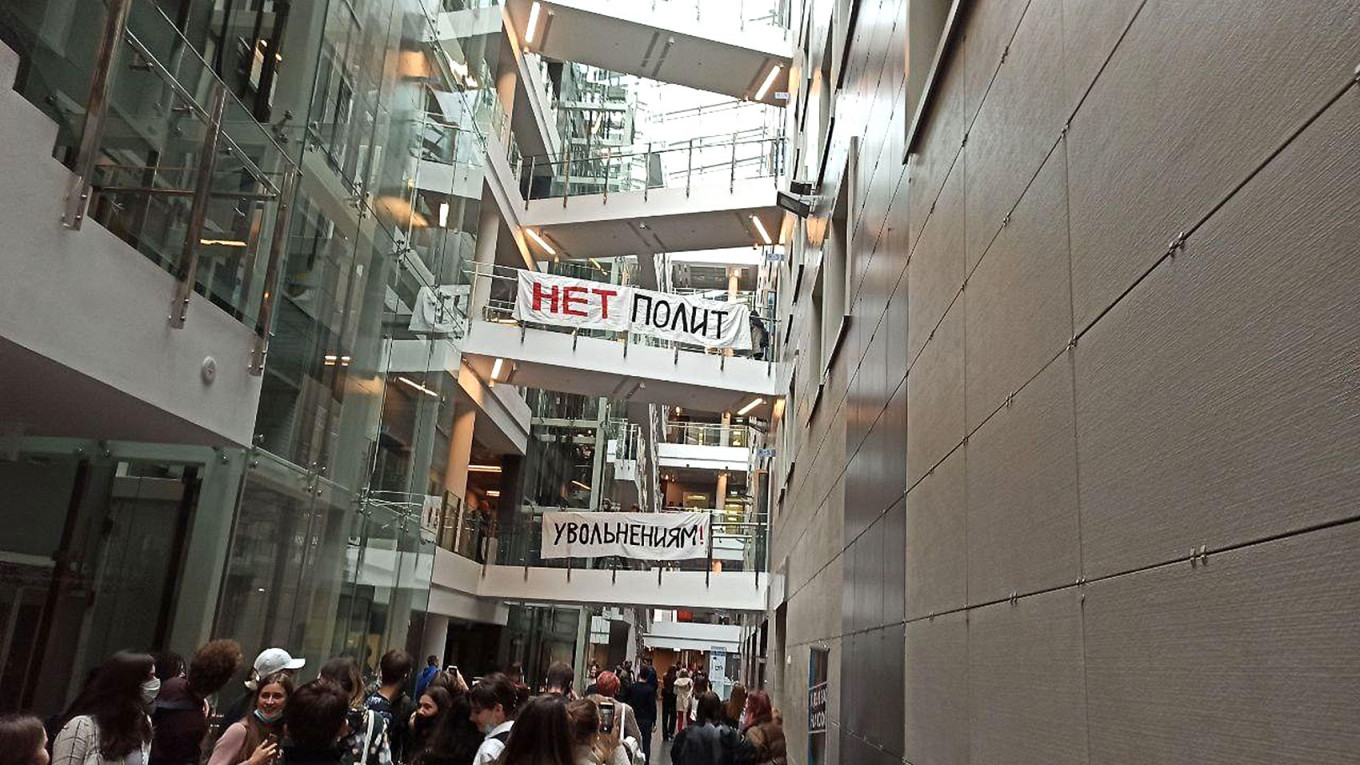
Amid 2019 opposition rallies in Moscow over local elections, political scientist Alexander Kynev alleged that his course was shut down by HSE for political reasons and that his contract was not renewed.
In recent years, HSE has appeared increasingly keen to be seen as loyal to the Kremlin.
A few months after Kynev’s dismissal, HSE political science student Yegor Zhukov was handed a three-year suspended sentence for inciting extremism online. Zhukov, who’d taken part in Moscow opposition protests, said he was pressured by university staff to remain politically silent and that HSE shut down the master’s program on which he was studying.
The university dissolved its constitutional and municipal law department in 2020 after faculty members appeared to criticize constitutional amendments allowing President Vladimir Putin to stay in power until 2036. And several master’s programs have been shuttered in recent years.
“I lost considerably in the quality of education,” HSE law graduate Alexander Sementsov, 23, who was affected by changes to the school’s private law master’s program, told The Moscow Times. “I wouldn't go to such a university if I were choosing now.”
At least nine lecturers were fired or forced to leave the university in 2020 as a part of a “reorganization” of HSE’s cultural studies and philosophy programs.
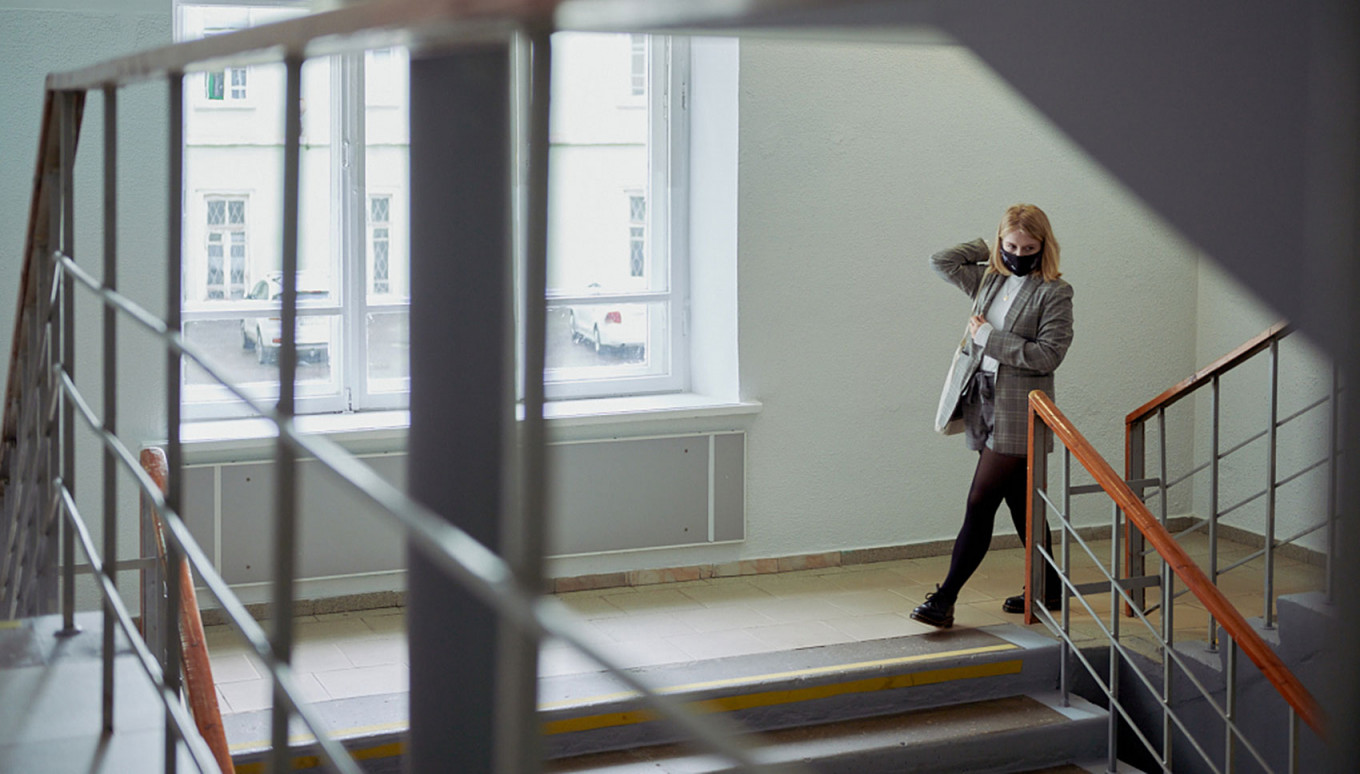
“At that time it seemed that the whole department would collapse and we would not even finish the [academic] year,” then-cultural studies sophomore Praskovia Zaroslova told The Moscow Times.
“Now there is the same feeling that without [recently departed academics] Kukulin and Mayofis it will collapse, because they teach over 50% of the classes,” she said.
Some link the increase of problems at HSE to the departure last year of economist Yaroslav Kuzminov, who had served as rector since the university’s founding in the early 1990s. The husband of Russia’s influential Central Bank chief Elvira Nabiullina, Kuzminov was widely seen as guaranteeing HSE’s “liberal” credentials.
“Authoritarian regimes see high-quality education as a direct threat to the brainwashing and indoctrination of the population,” said expert Kolesnikov of how the Kremlin views universities like HSE.
It remains unclear whether HSE will be able to maintain its position in international university rankings amid the current upheaval. Last year, the university was ranked in the top 25 universities worldwide — and in the top 3 in Russia — by the Times Higher Education Emerging Economies.
And the high-profile changes appear likely to deter future students from enrolling, as well as put off prominent academics from being associated with the institution.
“We have become like Moscow State University, a pro-government university,” said one HSE graduate who requested anonymity to speak freely. “The university atmosphere was manifested in the professors, and now the professors are leaving."
A Message from The Moscow Times:
Dear readers,
We are facing unprecedented challenges. Russia's Prosecutor General's Office has designated The Moscow Times as an "undesirable" organization, criminalizing our work and putting our staff at risk of prosecution. This follows our earlier unjust labeling as a "foreign agent."
These actions are direct attempts to silence independent journalism in Russia. The authorities claim our work "discredits the decisions of the Russian leadership." We see things differently: we strive to provide accurate, unbiased reporting on Russia.
We, the journalists of The Moscow Times, refuse to be silenced. But to continue our work, we need your help.
Your support, no matter how small, makes a world of difference. If you can, please support us monthly starting from just $2. It's quick to set up, and every contribution makes a significant impact.
By supporting The Moscow Times, you're defending open, independent journalism in the face of repression. Thank you for standing with us.
Remind me later.


